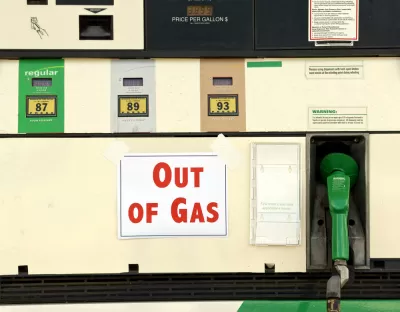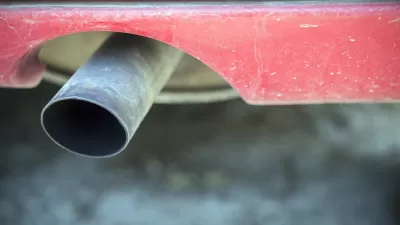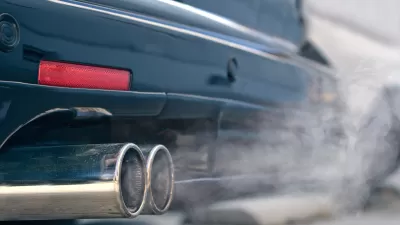A new EPA report indicates that auto manufacturers will meet fuel economy and greenhouse gas emissions standards relying largely on gasoline powered vehicles. Or will they? While likely to fall short of 54.5 mpg, they will come close enough.

Four years ago, the U.S. Environmental Protection Agency (EPA) agreed to auto manufacturers' requests to perform a 'midterm evaluation' for meeting the rigorous 2025 fuel economy and greenhouse gas emission standards. The idea was to allow for the possibility of reducing the standards in the latter years should they prove too difficult to meet.
A draft report issued July 18 by EPA in coordination with the National Highway Traffic Safety Administration (NHTSA), a division of the U.S. Department of Transportation (DOT), and the California Air Resources Board (CARB), shows there won't be a need for decreasing the 54.5 mpg goal.
"The draft TAR [Technical Assessment Report] shows that automotive manufacturers are innovating and bringing new technology to market at a rapid pace, and that they will be able to meet the MY [model year] 2022-2025 standards established in the 2012 rulemaking with a wide range of cost-effective technologies," states the announcement by the U.S Department of Transportation. [Italics added.].
Furthermore, they will be able to meet the standards without greater adoption of electric vehicles (EVs).
"Today’s draft report shows that automakers are developing far more technologies to improve fuel economy and reduce greenhouse gas emissions, at similar or lower costs, than we thought possible just a few years ago. And they are adopting these fuel-saving technologies into their fleets even faster than anticipated,” said Janet McCabe, acting assistant administrator for EPA’s Office of Air and Radiation. “This is simply great news for consumers, manufacturers, workers and the climate.”
The report "shows that the standards can be met largely with more efficient gasoline powered cars – we continue to project that only modest penetration of hybrids and only low levels of electric vehicles are needed to meet the standards," states the report's introductory webpage. [Italics added.]
View from EPA critics
The announcement omits stating that manufacturers will actually meet the 54.5 mpg standard by 2025.
"Even with all those positives, government officials said, the 54.5 mpg goal is off the table," reports Sharon Silke Carty, editor of Automotive News (paywall protected). "Lower gasoline prices have kept demand for SUVs, crossovers and other light trucks higher than originally anticipated, meaning the advances in fuel economy technology won’t be reflected fully in the fleet averages, which are sales-weighted."
Carty's article is referenced in an Auto Blog post, "Government abandons 54.5-mpg CAFE standard," by Brandon Turkus.
Hat tip to AASHTO Journal.
FULL STORY: EPA, DOT, and CARB Issue Report on 2022-2025 Vehicles Meeting Fuel Economy and GHG Emission Standards

Maui's Vacation Rental Debate Turns Ugly
Verbal attacks, misinformation campaigns and fistfights plague a high-stakes debate to convert thousands of vacation rentals into long-term housing.

Planetizen Federal Action Tracker
A weekly monitor of how Trump’s orders and actions are impacting planners and planning in America.

In Urban Planning, AI Prompting Could be the New Design Thinking
Creativity has long been key to great urban design. What if we see AI as our new creative partner?

King County Supportive Housing Program Offers Hope for Unhoused Residents
The county is taking a ‘Housing First’ approach that prioritizes getting people into housing, then offering wraparound supportive services.

Researchers Use AI to Get Clearer Picture of US Housing
Analysts are using artificial intelligence to supercharge their research by allowing them to comb through data faster. Though these AI tools can be error prone, they save time and housing researchers are optimistic about the future.

Making Shared Micromobility More Inclusive
Cities and shared mobility system operators can do more to include people with disabilities in planning and operations, per a new report.
Urban Design for Planners 1: Software Tools
This six-course series explores essential urban design concepts using open source software and equips planners with the tools they need to participate fully in the urban design process.
Planning for Universal Design
Learn the tools for implementing Universal Design in planning regulations.
planning NEXT
Appalachian Highlands Housing Partners
Mpact (founded as Rail~Volution)
City of Camden Redevelopment Agency
City of Astoria
City of Portland
City of Laramie





























